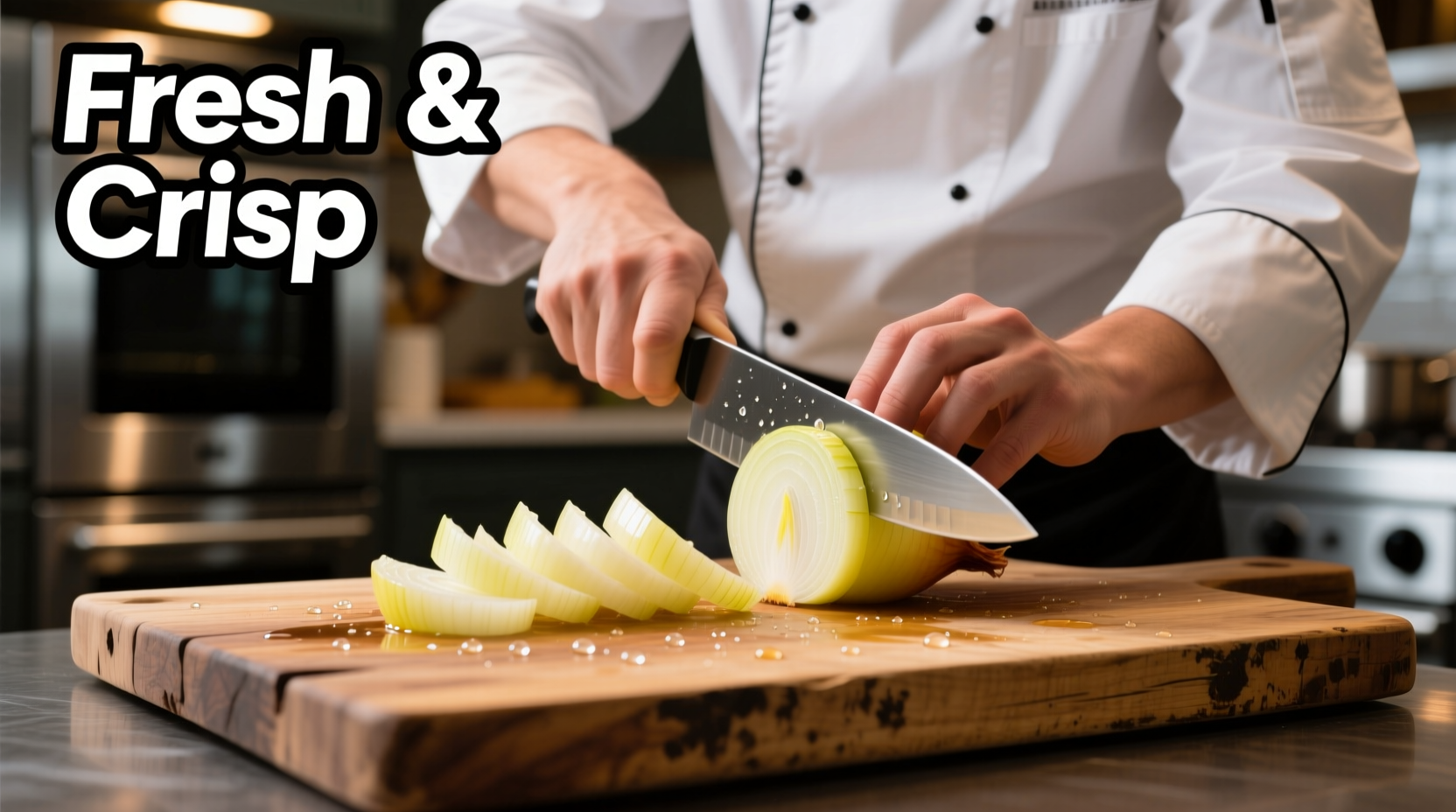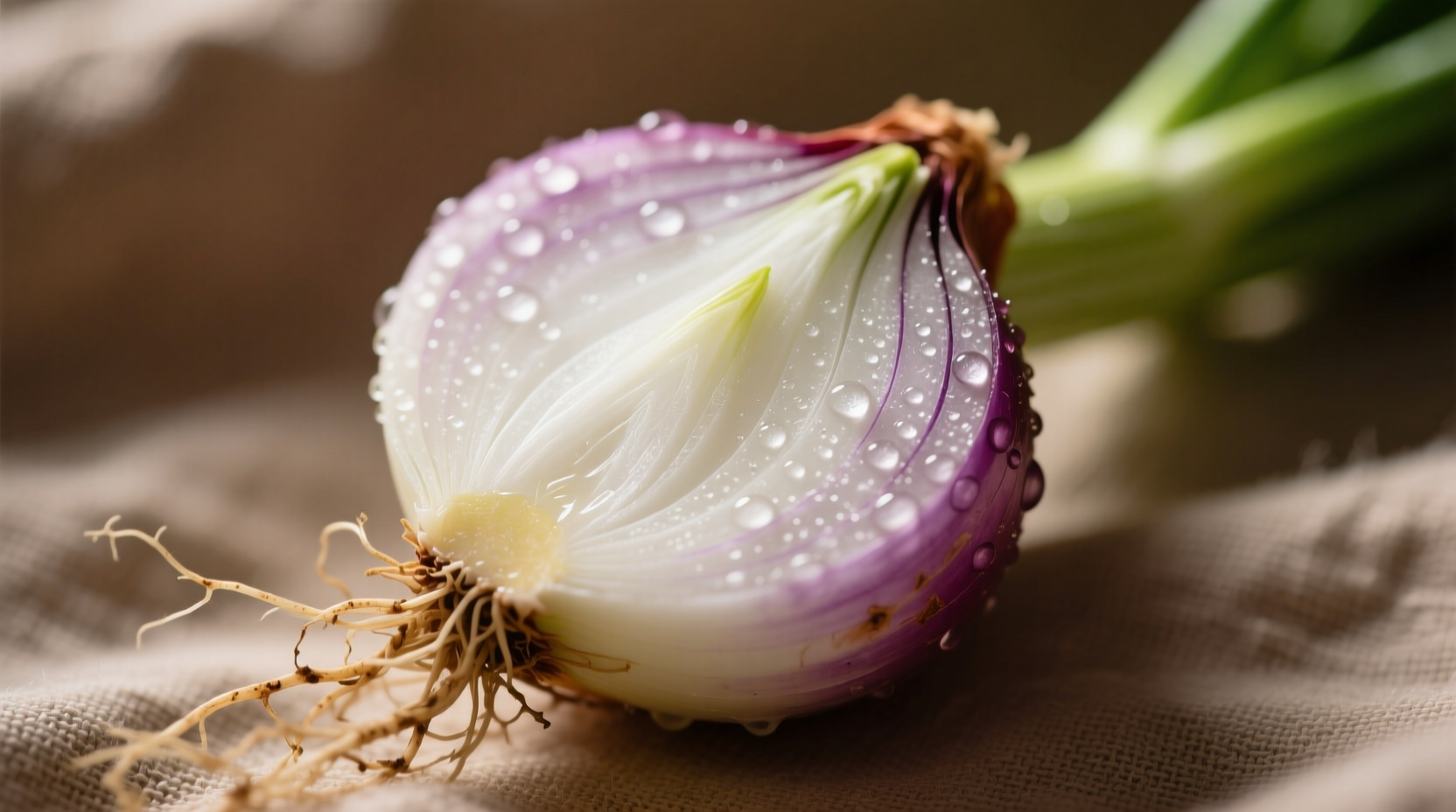When searching for "veg onion," you're likely seeking information about onions as vegetables. Despite the unconventional phrasing, onions rank among the world's most versatile and widely used vegetables. As a culinary professional with experience across diverse cooking environments, I've discovered that understanding onion varieties and proper handling techniques transforms ordinary dishes into extraordinary culinary creations.
Understanding Onions: More Than Just a Vegetable
Botanically classified as Allium cepa, onions grow as biennial or perennial plants with underground bulbs that serve as energy storage. The confusion around "veg onion" typically stems from non-native English speakers seeking basic information about onions as vegetables. All onions qualify as vegetables since they're edible plant parts consumed for nutrition rather than sweetness like fruits.
Common Onion Varieties Compared
| Variety | Flavor Profile | Best Uses | Storage Life |
|---|---|---|---|
| Yellow Onions | Strong, pungent when raw; sweet when cooked | Soups, stews, caramelizing | 2-3 months |
| Red Onions | Sharp, slightly sweet | Salsas, salads, pickling | 3-4 weeks |
| White Onions | Crisp, clean bite | Mexican cuisine, grilling | 1-2 months |
| Sweet Onions | Mild, naturally sweet | Raw applications, onion rings | 2-3 weeks |
This comparison reflects data from the USDA Agricultural Research Service, which maintains comprehensive records of vegetable varieties and their characteristics. Understanding these differences helps home cooks select the right onion for specific culinary applications.
Nutritional Benefits Backed by Science
According to USDA FoodData Central, a medium-sized onion (110g) provides:
- 44 calories
- 10g carbohydrates
- 2g fiber (7% of daily value)
- 20% of daily vitamin C needs
- Significant quercetin and other antioxidants
Research published in the Journal of Agricultural and Food Chemistry confirms that onions contain compounds that may support cardiovascular health and reduce inflammation. The sulfur compounds responsible for onions' distinctive aroma also contribute to their health-promoting properties.
Professional Cooking Techniques for Maximum Flavor
Having worked in both high-end restaurants and casual cooking environments, I've learned that proper onion preparation makes a dramatic difference in final dish quality. Follow these chef-recommended techniques:
Knife Skills for Different Applications
Cooking: Uniform dice ensures even cooking. Always cut parallel to the root end first to maintain structure. Raw applications: Soak sliced onions in ice water for 10 minutes to reduce sharpness while preserving crunch.
Mastering Caramelization
True caramelization requires patience. Cook sliced onions over medium-low heat for 30-40 minutes, stirring occasionally. Adding a pinch of sugar accelerates the Maillard reaction, but isn't necessary. The natural sugars in onions (particularly sweet varieties) will caramelize beautifully with proper technique.
Temperature Matters
Start cooking onions in a cold pan with oil to draw out moisture gradually. This prevents burning while developing complex flavors. Never overcrowd the pan, as this steams rather than sautés the onions.

Growing Your Own Onions
Home gardeners can successfully grow onions with basic requirements:
- Soil: Well-draining, pH 6.0-7.0
- Sunlight: Minimum 6 hours daily
- Planting: Sets planted 1-2 inches deep, 4-6 inches apart
- Watering: Consistent moisture, especially during bulb formation
According to the University of California Cooperative Extension, onions require approximately 100 days from planting to harvest for full-sized bulbs. Stop watering when tops begin to fall over to encourage proper curing.
Storage and Selection Guide
Proper storage extends onion shelf life significantly. Select firm onions with dry, papery skins and no soft spots. The National Onion Association recommends:
- Store in cool, dark, well-ventilated area
- Never refrigerate whole onions (except sweet varieties)
- Keep away from potatoes which emit moisture-accelerating gases
- Cut onions should be refrigerated in airtight containers for 7-10 days
Understanding these storage principles prevents premature sprouting and spoilage, ensuring your onions maintain peak quality.











 浙公网安备
33010002000092号
浙公网安备
33010002000092号 浙B2-20120091-4
浙B2-20120091-4